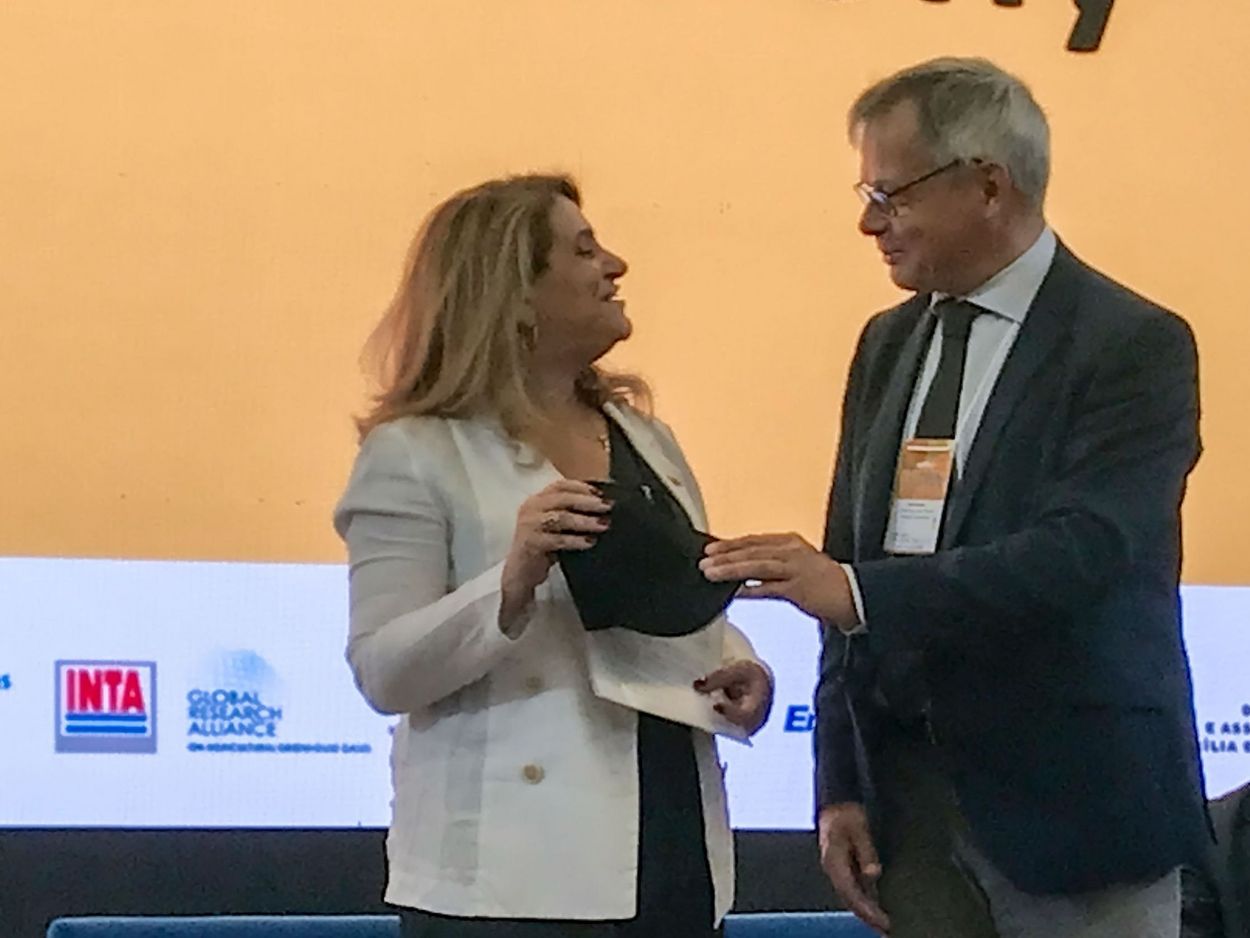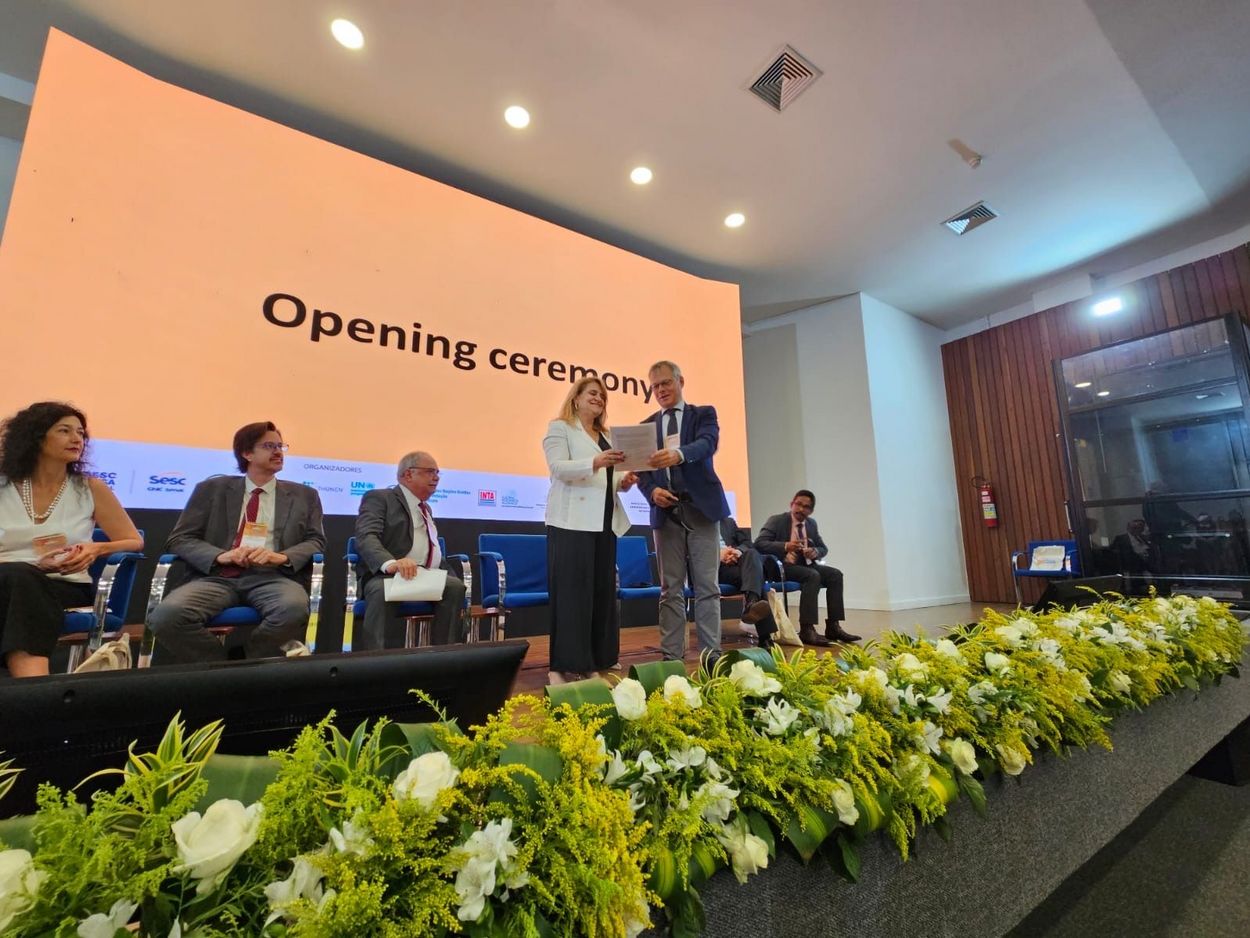Together with the Brazilian partner institute Embrapa and other international partners, the Thünen Institute of Market Analysis is organising the Regional Workshop on Preventing Food Losses and Waste with a focus on Latin America and the Caribbean on 22 and 23 October 2024 in Brazil's capital Brasilia. At the same time, Embrapa and the Thünen Institute have signed a Memorandum of Understanding (MoU) to strengthen cooperation in research, development and innovation. The strategic partnership includes participation in key events such as the Meeting of Agricultural Chief Scientists of the G20 (MACS-G20).
The initiative is the result of an international collaboration involving the Thünen Institute and Embrapa, as well as the UN Environment Programme (UNEP), the Brazilian Ministry of Social Development and Fight against Hunger (MDS), the Food and Agriculture Organisation of the United Nations (FAO), the National Institute of Agricultural Technology - INTA (Argentina) and the Global Research Alliance - GRA (New Zealand). The meeting is also supported by the Alliance Against Hunger and Sesc/Mesa Brasil, the Brazilian food banks.
Embrapa's representative on the organising committee, Gustavo Porpino, stresses the importance of interaction between Latin American countries in reducing food waste: ‘Progress in the fight against food waste means a reduction in greenhouse gas emissions, an increase in the supply of healthy food and the creation of opportunities for social entrepreneurship. All of these environmental, social and economic benefits will be discussed by countries and new research data will be presented to support public policy,’ emphasised Porpino.
For Felicitas Schneider, scientist at the Thünen Institute and coordinator of the MACS-G20 collaboration on food losses and waste, the focus of the workshop is on linking policy and practice to promote effective reduction of food loss and waste.
'Participants, including companies, NGO employees, consultants and representatives of various organisations, will receive information and learn strategies that they can immediately implement in their work. This year, almost 180 people from 17 countries and more than 90 organisations will come together in Brasilia to learn and collaborate on this important topic,’ said Felicitas Schneider.
‘Resuming the dialogue on reducing food loss and waste in Brazil is very important at this time. It focuses on the social and environmental emergencies caused by climate disasters, the imbalance of agricultural and food systems and the resulting food and nutrition insecurity,’ said Lilian Rahal, National Secretary for Food and Nutrition Security of the MDS.
The event is in line with target 12.3 of the United Nations Sustainable Development Goals (SDGs) to halve food waste by 2030. According to the Brazilian Supermarket Association (ABRAS), fruit and vegetable waste in the national retail sector will amount to around 4.1 billion Brazilian reals (R$) in 2023.
An exhibition on the circular economy and combating food losses and waste will be held alongside the workshop on 22 and 23 October. The exhibitors will present research results, best practice examples and invite visitors to taste food from coffee production side streams.
‘Fighting hunger and reducing food loss and waste are challenges that require collaboration and innovation. This workshop is a valuable opportunity for us to share good practices and develop effective strategies that unite the efforts of different countries for a more sustainable future,’ said Liriam Ikeda, Food Loss and Waste Manager at the Pact Against Hunger.
Global impact of food waste
The latest UNEP Global Food Waste Index report shows that global food waste will reach one billion meals per day by 2022. 60 per cent of this is attributable to households, which produce an average of 79 kilograms of waste per capita per year. In addition, food waste contributes to eight to ten per cent of global greenhouse gas emissions and exacerbates climate change, while 783 million people are still affected by hunger and food insecurity.
International partnerships and cooperation
Since 2018, the Thünen Institute, together with international partner organisations such as Brazil's Embrapa, has been actively contributing to cooperation on food loss and waste. An initiative led by the German government through the Thünen Institute in coordination with the G20. This commitment also extends to the agricultural policy dialogue between Brazil and Germany, which promotes the technical exchange of experiences and government measures that are essential for the transformation of the agricultural sector towards resilience and sustainability.








